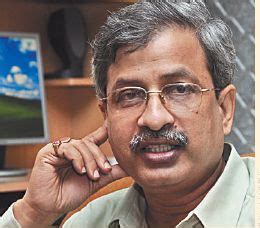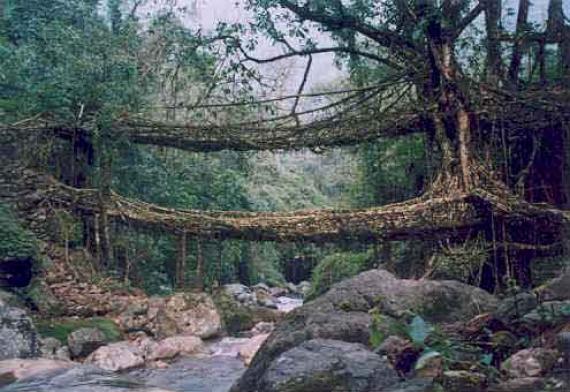This talk dwells upon different research paradigms such as Hypothesis-oriented, Assessment-oriented, Action-oriented, Systems-oriented, Social adaptive (similar to V2V) frameworks. The motivation behind this talk is to discuss research that goes beyond the conventionally defined domains of science; the relevance of non-expert based knowledge to offer solutions to complex social and environmental problems, and the research that can bring significant impacts on people’s behavior by small endeavors.

The implications of the novel and non-traditional research framework for vulnerability to viability transitions will be discussed as a way forward for building resilient communities in a variety of resource contexts. The emphasis is laid primarily on exploratory research in resource constrained contexts with a focus on what happens in 450,000+ villages in India, where people survive and even thrive in adverse circumstances and where collective identity and common goals are far more important than individualism.
Dr. Mandal shows how institutional memory, mutual valuing and shared experience are key ingredients of frugal innovation and that people in the villages are adapted to transformation as a way to eke out a living. Among the examples to illustrate the point he referred to the use of roots of live rubber trees in terrains, where it would be too expensive and complicated to build conventional bridges of steel or concrete. These bridges are very sturdy and functional for the needs of the villagers.

He argues that investigating their mode of garnering collective intelligence, creation of solutions through shared inputs and changed behaviours requires a flexible non-conventional research framework that can not be pre-planned in detail. He illustrates with a number of other examples how villagers develop inexpensive solutions with locally available resources that do not necessarily seek perfection, but must be good enough for their purpose. The solutions they develop are responses to everyday challenges. They deliver more value at lower cost and level inequality. By creating new relationships and enhance the local society’s capacity to act they bring greater autonomy and ultimately more happy lives.
While solutions are site- and community-adapted, many may still scale and enable interesting solutions elswhere as well. This is where exploratory research has a great role to play.
Check out the full lecture and Q&A session here.
Small-Scale Fisheries Academy
- SSF and Environmentalists rethink fisheries together
- Make Fishing Fair
- Foreign overfishing fuels Senegal’s deadly migration crisis to Europe
- Mundus maris at MARE 2025
- Small-scale fishers at the center of ocean governance and food security
- Make Fishing Fair in the EU, 25 March 2025
- Human – Biodiversity Relationships Across Scales
- World Fisheries Day, 21 November 2024, celebrated in Nigeria
- Mundus maris participated in the 2024 World Fisheries Day organized by Canoe and Fishing Gear Association of Ghana (CaFGOAG).
- Mundus maris contribution to the UNOC3 public consultation
- Small-Scale Fisheries Summit in Rome, 5-7 July 2024
- Regional Symposium on European Small-Scale Fisheries, Larnaca, Cyprus, 1-3 July 2024
- Baltic Fisheries Emergency Meeting, Brussels, 26 June 2024
- Ambivalent role of Market and Technology in the Transitions from Vulnerability to Viability: Nexus in Senegal SSF
- Shell fisheries as stewardship for mangroves
- African edition of 4WSFC in Cape Town, 21 to 23 November 2022
- World Fisheries Day, 21 November 2023
- Webinar: Nigeria’s Fisheries challenges and opportunities
- Presenting the FishBase app at the Symposium in Tervuren
- MARE Conference on Blue Fear – Mundus maris reflects
- The Transition From Vulnerability to Viability Through Illuminating Hidden Harvests, 26 May 2023
- EGU sessions focused on geoethics and joint learning, 23-28 April 2023
- Solidarity with artisanal fishers in Senegal and Mauritania
- The legal instruments for the development of sustainable small-scale fisheries governance in Nigeria, 31 March 2023
- Tools for Gender Analysis: Understanding Vulnerability and Empowerment, 17 February 2023
- Community resilience: A framework for non-traditional field research, 27 January 2023
- Sustainability at scale – V2V November webinar
- European edition of 4WSFC in Malta, 12-14 September 2022
- Mundus maris contributes to SSF Summit in Rome
- Women fish traders in Yoff and Hann, Senegal, victims or shapers of their destiny?
- The Academy continues its work in Yoff
- Illuminating the Hidden Harvest – a snapshot
- Virtual launch event FAO: International Year of Artisanal Fisheries and Aquaculture
- The Small-Scale Fisheries Academy as a source of operational support to PA Guidelines
- World Fisheries Congress, Adelaide, 20-24 September
- Mundus maris supports the fight of Paolo, the fisher, in Tuscany, Italy
- Catching-up – SSF Academy Yoff, 27 Febr. 2021
- Strengthening capacities of the actors for sustainable small-scale fisheries
- Testing training methods during the pilot phase of the SSF Academy in Senegal
- A premiere – launch of a Small-Scale Fisheries Academy in Senegal
